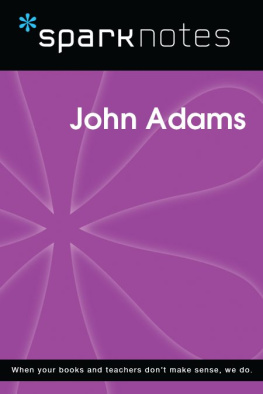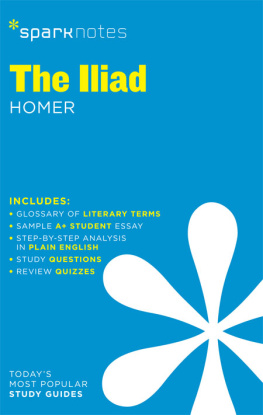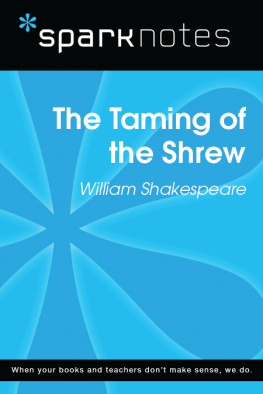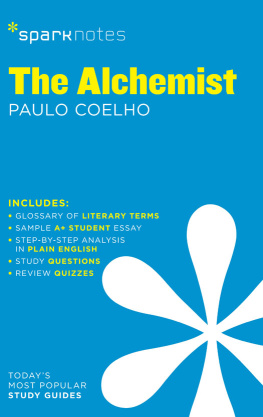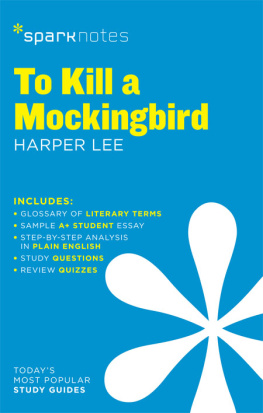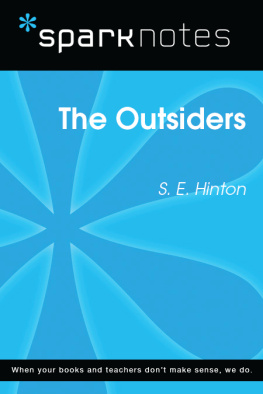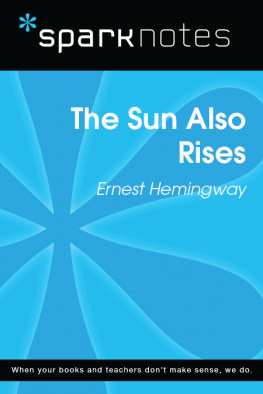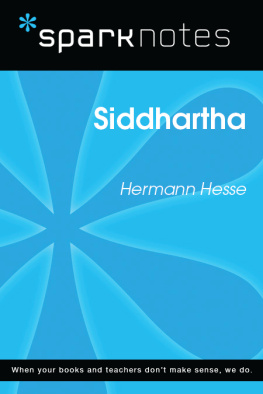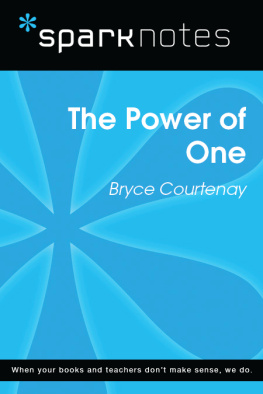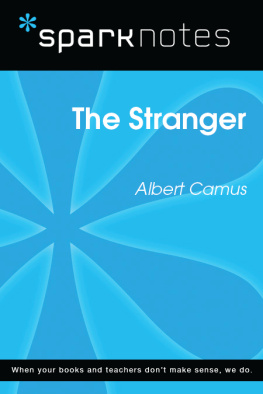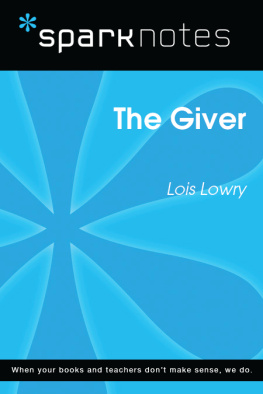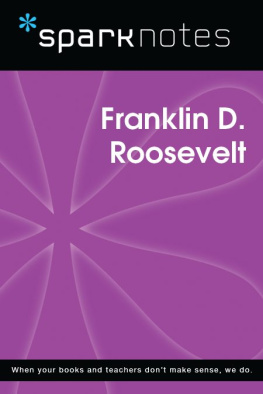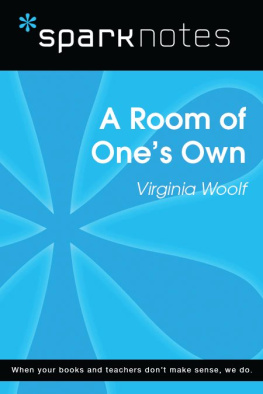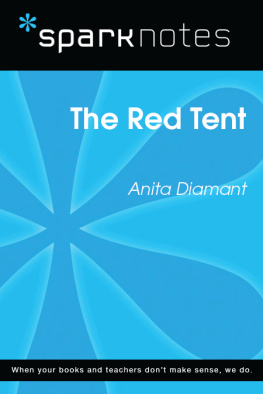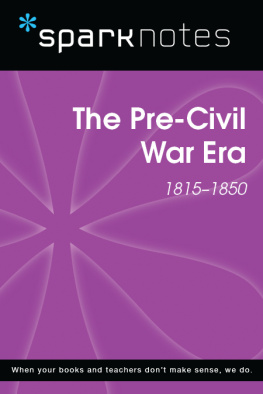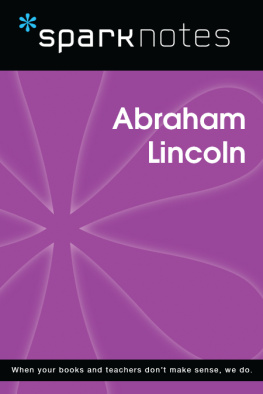John Adams
2003, 2007 by Spark Publishing
This Spark Publishing edition 2014 by SparkNotes LLC, an Affiliate of Barnes & Noble
All rights reserved. No part of this publication may be reproduced, stored in a retrieval system, or transmitted in any form or by any means (including electronic, mechanical, photocopying, recording, or otherwise) without prior written permission from the publisher.
Sparknotes is a registered trademark of SparkNotes LLC
Spark Publishing
A Division of Barnes & Noble
120 Fifth Avenue
New York, NY 10011
www.sparknotes.com /
ISBN-13: 978-1-4114-7217-4
Please submit changes or report errors to www.sparknotes.com/.
10 9 8 7 6 5 4 3 2 1
Context
By all accounts, John Adams lived during a turbulent time. He began life as a proud Englishman and then rose to become the second president of a new nation. This evolution was not entirely a coincidenceas Adams, and his cousin, Samuel Adams, did more to secure their own future and their own destiny than most. John Adams, an opinionated lawyer by trade, found himself thrust to the forefront of the American Revolutiona movement he saw not as a revolution, but as merely reasserting of rights denied by the British Parliament.
The greater Boston area that John Adams was born into in 1735 was one of the few well-settled areas and key trading ports on the east coastalong with Philadelphia and New York. Founded barely a century ago by Puritans under the eye of John Winthrop, it still reflected many of its Puritan roots. However, it was also a growing city and full of merchants, traders and artisans. For much of Adams' early life, he grew up a farm boy until entering the prestigious Harvard College, where he vacillated between a career in law and medicine. He decided on law and the still rural nature of his area is indicative in the fact that there were no other lawyers on the South Shore. During this era, Massachusetts faced almost continual attacks from Indians, finally culminating in the French and Indian War from 1754 to 1763. Since the colonies lacked the necessary manpower, training or equipment to field a strong army against the attackers, and British troops did the majority of the fighting. The growing cost of the war encouraged Britain to begin leveling taxes against the colonies.
The next decade marked a series of spatseach more serious than the lastbetween England and the colonists, more specifically the patriotic "hotheads" in Boston led by Samuel Adams and the Sons of Liberty. What began with the Writs of Assistancewhich allowed customs agents broad search powersthen spiraled into the Sugar Act, which raised taxes for the colonies. Then, in March 1765, Britain imposed the Stamp Act, the first "internal" tax on the colonies. Throughout, John Adams found himself becoming the written voice of the Revolution, drafting documents, letters and complaints on behalf of the patriots' cause.
Tensions escalated further still with the Quartering Act in New York in 1766 and the Townshend Acts in 1767. Boston broke into almost outright rebellion, forcing the governor to request British troops for protectiontroops which later organize the resistance that resulted in the Boston Massacre. Adams, one of the most respected lawyers in the area, was asked to defend the troops involved in their trial for manslaughter. Adams, believing that law should be impartial, accepted the controversial post and successfully won acquittal for the commanding officer. However, throughout the colonies, anti-British feelings ran high and there grew a greater sense of colonial unity than ever before. With the Boston Tea Party, the American patriots acknowledged their desire for freedom and the possibility of armed resistance to the British.
The Revolutionary War officially began in April of 1775, when British troops marched on Lexington and Concord only to meet armed colonial "Minutemen." Adams served on the First Continental Congress and the Second Continental Congress, which presented a unified front to the British King and, in July 1776, declared America's independence from British rule. Despite the best efforts of thousands of British troops and hired German mercenaries, the Minutemen, under the command of George Washington, held their own. And, in 1780, with the help of French troops, the American army forced the surrender of the main British army at Yorktown, effectively ending the war.
The post-war period was a rough adjustment for the colonies, as they struggled with how to build a new country and prevent the tyrannies they had witnessed in the British rulers. Adams found himself dispatched to Europe to develop diplomatic ties there, and then returned to serve as vice president in the new government. He suffered in the "insignificant" new post as the American government began to break factions that came to be known as political parties, the Federalists and the Anti-Federalists. Then, when he narrowly won the presidency, Adams found himself faced with an imminent war with France. With European countries still unsure of America's strength and resolve, Adams found that France was testing them. When he stood strong, the French government backed down.
The loose confederation of thirteen British colonies in the New World had firmly established themselves as a free nation on the move. Adams, the longest-living president in American history, lived long enough to see the the development of that nation through the War of 1812 and to see his son, John Quincy Adams, elected president.
Summary
John Adams, the first of a long line of Adams men to rise to historical prominence, might be best remembered as one of the most influential voices of the American Revolution. His vocal opinions and eloquent writing, plus a solid background of legal and philosophical studies, made him a natural choice to assist drafting many of the documents of the Revolution, from the earliest letters of complaint to Crown officials to the Declaration of Independence and the Massachusetts Constitution. He and Thomas Jefferson could be understandably called the voices of the Revolution.
John Adams was born on October 30, 1735 at his family's farm in Braintree, Massachusetts, just south of Boston. Despite a long and distinguished public career that would take him across America and Europe, he never strayed far from his Braintree roots and returned whenever possible. Born to a rich mother and a Deacon father, Adams took to reading and writing at an early age. Throughout his life he would faithfully record his daily happenings in what eventually amounted to a more than four-volume autobiography.
Adams entered Harvard College as early as he could and after several years of debating what career to pursue, he became a teacher in nearby Worcester upon graduation. The life of a teacher, however, was not for himbut his new job did bring him into contact with some of the colony's intellectuals and led him to begin studying law. In 1758, he was admitted to the Suffolk County Bar, and began to distinguish himself as a fair, thoughtful lawyer. In fact, he amassed such a positive reputation that despite his patriotic feelings, the Crown governor later tried to appoint him Attorney General.
By the early 1760s, Boston was sinking into rebellion as the British Parliament began to pass taxes meant to pay for the French and Indian War. A series of measures like the Sugar Act, the Stamp Act and the Townshend Acts drew fire from the colonists, especially patriotic groups like the Sons of Liberty, creating an increasingly hostile environment in the Massachusetts port city. At the request of the legislators, Adams drafted complaints to the governor and began campaigning for the colony's "natural rights." In an decision that enraged the populace, Britain dispatched troops to keep the city peacefula move that backfired when troops opened fire in the Boston Massacre. Adams successfully defended the troops in a controversial murder trial. However, the colonies were certainly beginning to move slowly to war.

